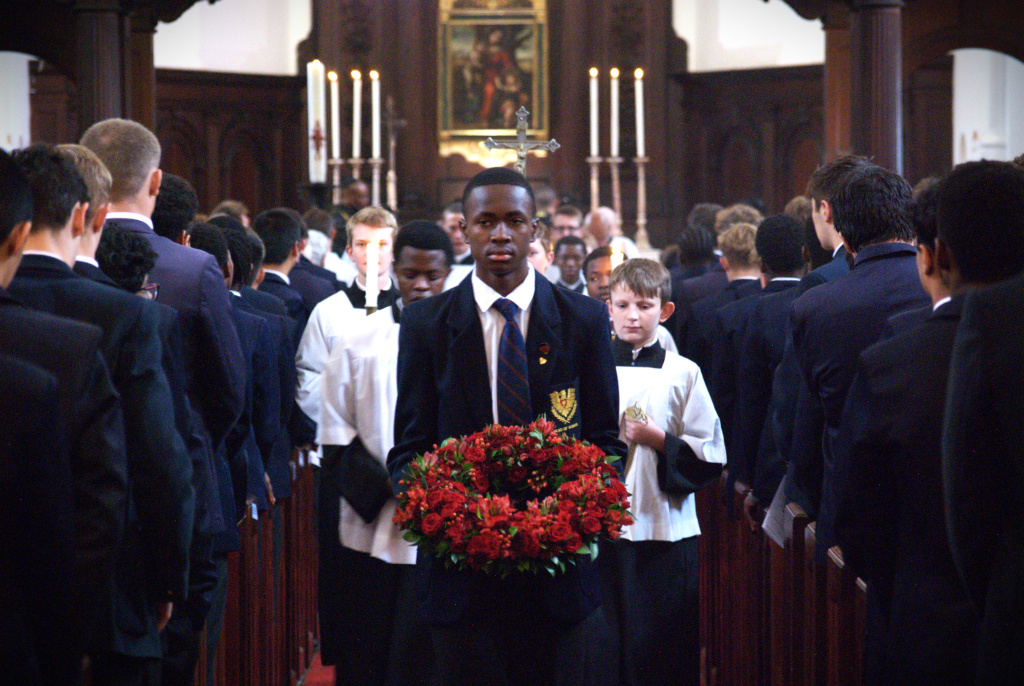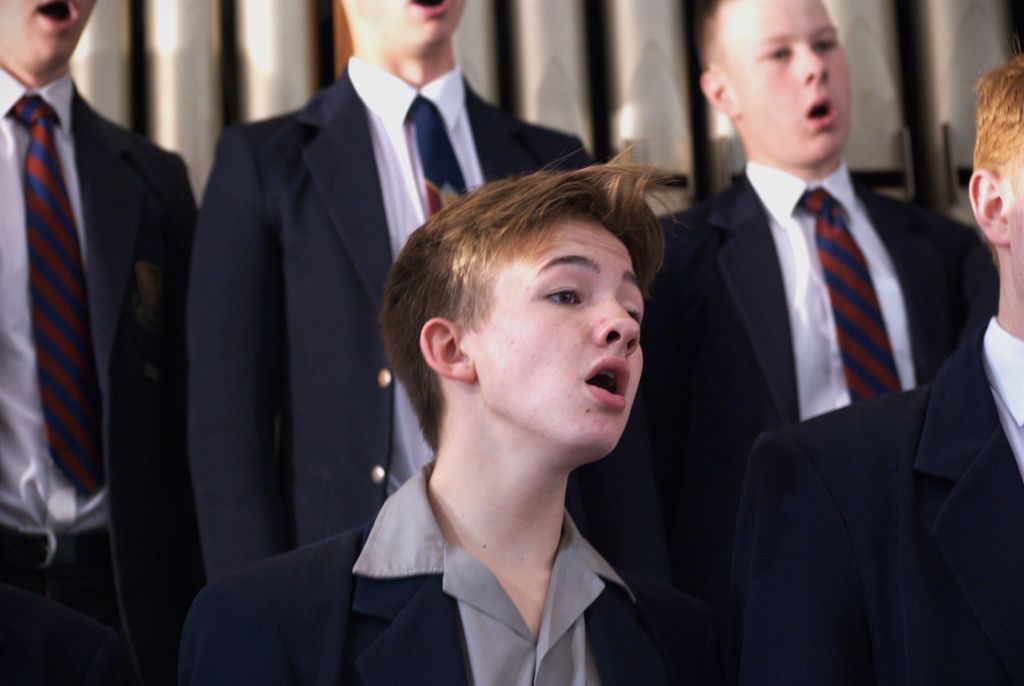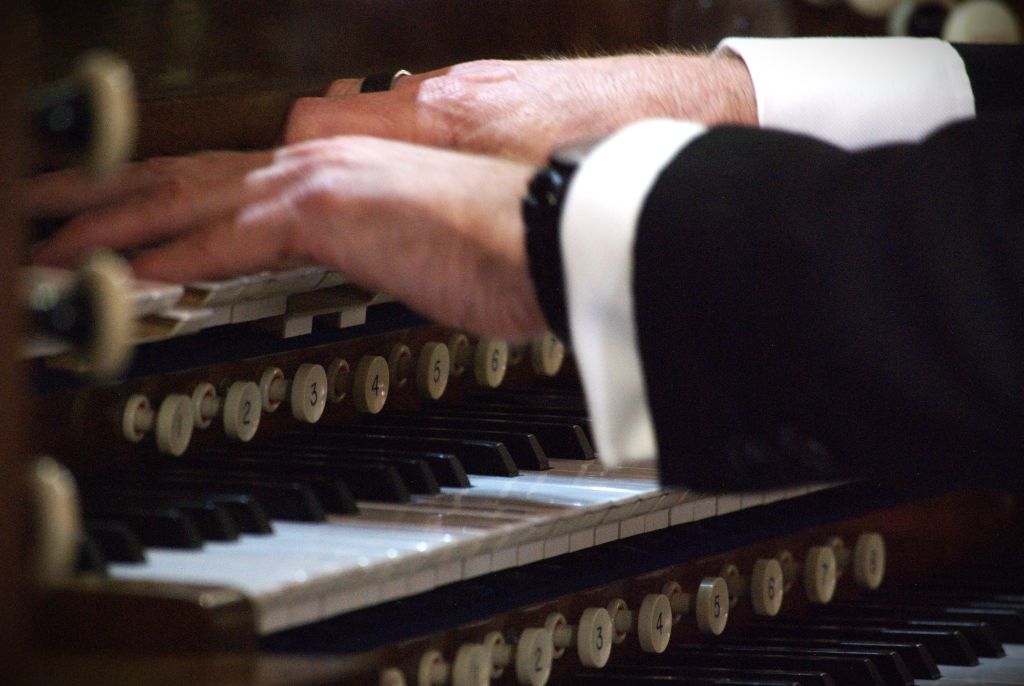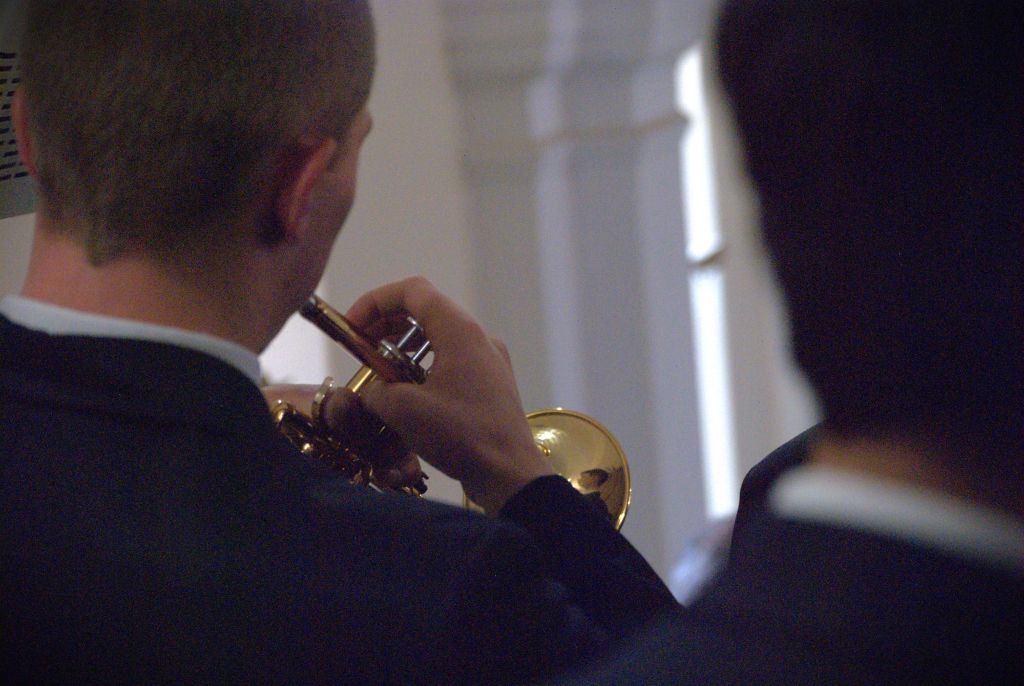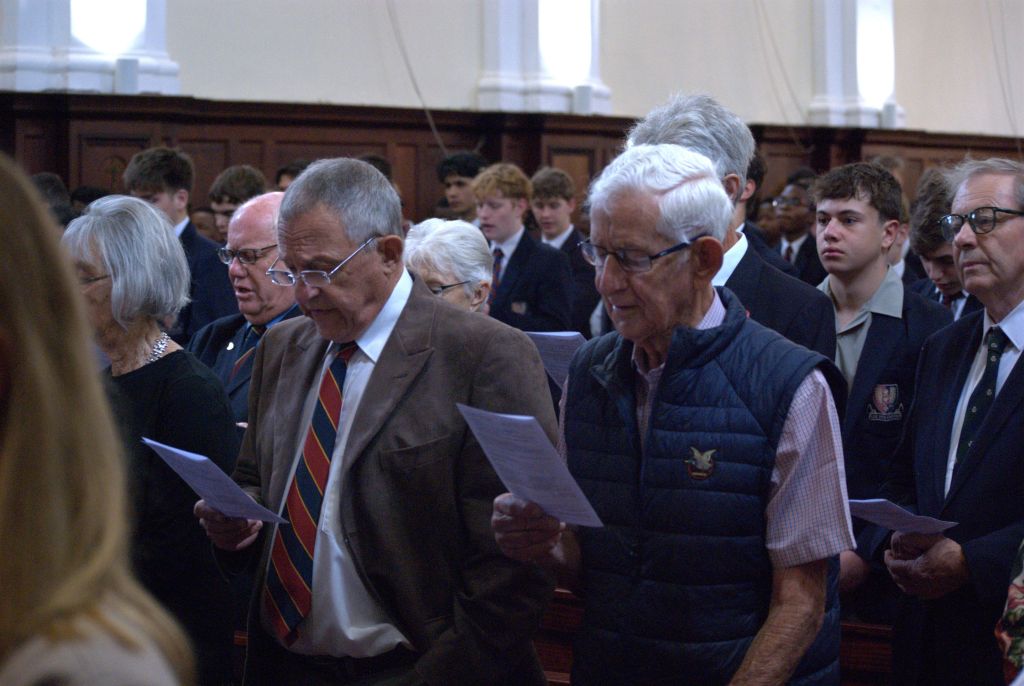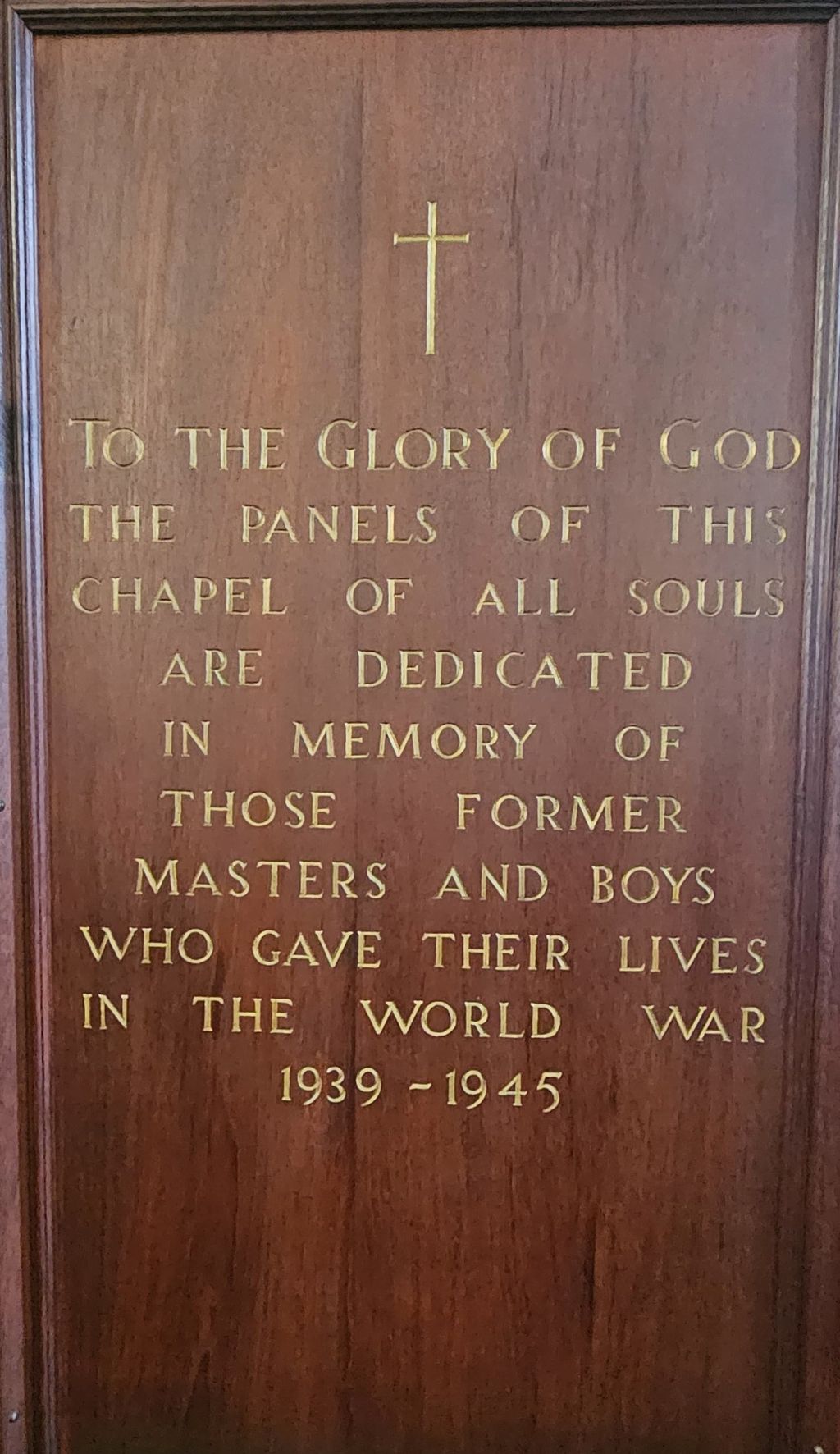"They shall grow not old, as we that are left grow old:
Age shall not weary them, nor the years condemn.
At the going down of the sun and in the morning, we will remember them."
St John’s College students, staff, and Old Johannians gathered in the Memorial Chapel for our annual Remembrance Day Mass, honouring the lives and sacrifices of those who have served in wars past and present.
The haunting sounds of "The Last Post", performed by Jason Aspoas (LV Clarke), filled the chapel from the choir gallery, followed by the laying of the wreath by Siza Gule (Head of School) in memory of those who gave their lives for greater peace. After a moment’s silence, "The Rouse", also performed by Aspoas, brought the solemn tribute to a close.
The music of the Solemn Mass included "Libera me and Pie Jesu" from Gabriel Fauré’s "Requiem", performed by the 110-strong Chapel Choir, with soloists Tirivashe Pasipanodya (LIV Nash) and Benjamin Anderson (UIII). The "Kontakion for the Departed" was sung during the concluding rites, and the liturgy ended with an organ postlude by Anton Bruckner.
This tradition began at St John’s in 1926 with the dedication of the Memorial Chapel, built in the spirit of remembrance after the First World War. The names of 158 Old Johannians and staff who lost their lives in both World Wars—60 in the First World War and 99 in the Second World War—remain etched in the panels of the All Souls’ Chapel, a lasting tribute to their courage and service.
Remembrance Day reminds us of the indelible impact of global conflicts—the hardships endured during the World Wars and the ongoing wars still raging in our world today. This day holds particular significance in South Africa, especially since 1994, as we honour those who made enormous sacrifices in our country’s struggle and journey toward democracy.
May God hold all who have made this ultimate sacrifice in His eternal light, and may we honour their legacy by uplifting and supporting our community. Lest we forget.
📸Travis Stewart (UIV Fleming)
Matthew 5:1-12 (Remembrance Day) – "Are we peacemakers?"
At the start of this reflection, I wish to begin with a question: Will we answer the call to be peacemakers? You may think I am premising this on the fact that Jesus Himself was a pacifist. I don’t believe He was. He simply was able to see and recognise that, ultimately, all armed conflict is futile. His own disciples were armed, and at one point in His ministry, He instructs them to procure arms. But by the end of His ministry, or the culmination of His ministry, He comes to the realisation that the overarching reality and power of what He refers to as the Kingdom transcends all earthly efforts at power.
This is a special time of year where, by the grace of God, we enjoy greater proximity to the souls of the departed than we do at any other time of the year. This is true also for those who have died in war, whose lives we remember today.
If we consider, momentarily, the observance of Remembrance Day in the life of the Church: In its initial conception, it commemorated the lives of the Allied Forces, or more particularly the lives of soldiers from the Commonwealth who died in the First World War. Over time, the commemoration has become more encompassing, including all the lives of those lost in all wars, and therefore lamenting war itself.
So, whereas Remembrance Day in its initial conception, in some ways, was a celebration of war, in so far as it celebrated the honour and heroism of fallen soldiers, in today’s context, it must surely be, in some part, a lamentation of war and a call to end armed conflict.
By no means should we lose sight of the original focus of Remembrance Day. What remains central are the lives of millions of young men (and, in some cases, women) who gave their lives in the service of their country. So, as we remember their courage and valour, our gratitude for their service and sacrifice should not wane.
"Blessed are the peacemakers, for they will be called children of God."
As we are gathered here today, it goes without saying that wars continue to be waged around the world. There is growing recognition that what is sometimes referred to as the military-industrial complex profits greatly from the waging of war. War is business. War is profit. Perhaps it always has been. Throughout civilization, it has always been profitable for the victors, and in today’s age, the victors are the arms manufacturers.
"Blessed are the peacemakers, for they will be called children of God."
We have not, at this point, said anything about the threat of nuclear war and the potential for widescale devastation this would bring. Our own government, apart from supporting certain UN peacekeeping missions in North Africa, cannot be rightly thought of as a country that frequently wages war on or against other countries. And yet, ironically, there is a great need for peace in our country, is there not?
So, as we gather today to commemorate the lives of those lost in war, in all wars, and in all armed conflict, can we, as a human race, really afford to engage in acts of war? For the preservation of our world, our natural environment, and the future of our species.
Are we peacemakers, and can we afford not to be? — Homily by Fr Matthew Wright, Chaplain, at the Remembrance Day Mass.

